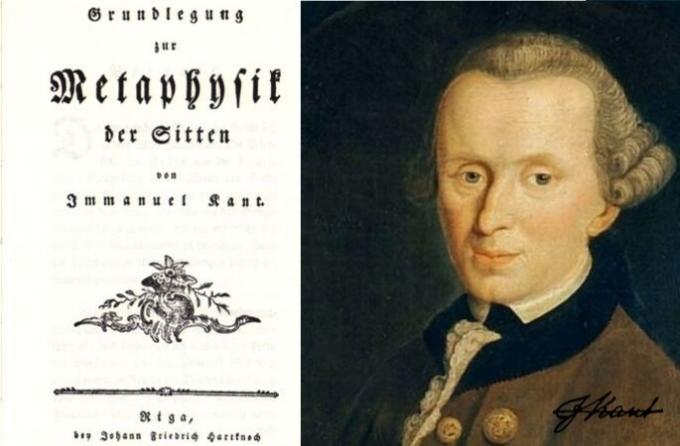You Enlightenment Philosophers contributed in different ways and in different areas of knowledge.
From moral, religious and political issues to those of an economic and philosophical nature, the ideals of Enlightenment thinkers promoted the world awareness process.
The "lights" of Enlightenment thought are a critical response to the "darkness" of medieval thought, in which the entire knowledge production was subordinated idea to religion, as a way to justify faith and the power of Church.
Despite the particularities present in the thinking of each of them, the issues related to the production of an independent knowledge, centered on reason and distanced from the theology proposed by the Church, is a hallmark ordinary.
Voltaire (1694-1778)
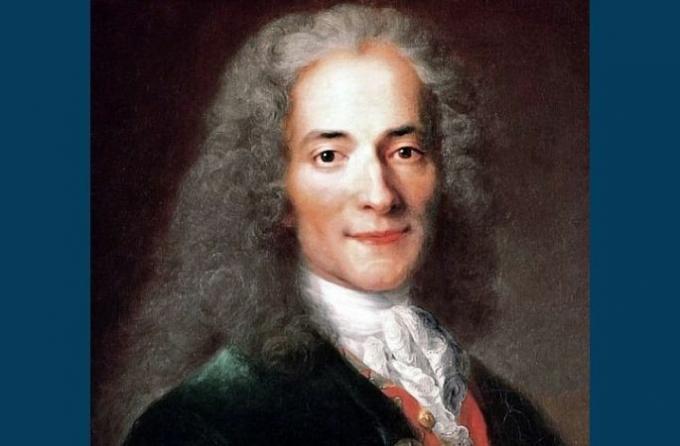
Voltaire, pseudonym of François-Marie Arouet, was a French philosopher who was born in Paris. His criticisms of the nobility resulted in various situations of imprisonment and exile.
Main Ideas
Voltaire defended the idea of a centralized monarchy, whose monarch should be educated and advised by philosophers.
He was a severe critic of the religious institutions as well as the feudal habits that still prevailed in Europe. He asserted that only those endowed with reason and freedom could know the divine will and purposes.
All who claimed to be the sons of gods were the fathers of imposture. They used lies to teach truths, they were unworthy to teach them, they were not philosophers, they were, at best, liars full of prudence.
Main Works
Voltaire's main work, "English Letters or Philosophical Letters", was a set of letters about English customs, which he compared to those of the backwardness of absolutist France.
Despite this, he was against any revolution, as he believed that monarchs would be able to rationally guide themselves to fulfill their role.
He also wrote novels, tragedies and philosophical short stories, including "The Naive".
John Locke (1632-1704)
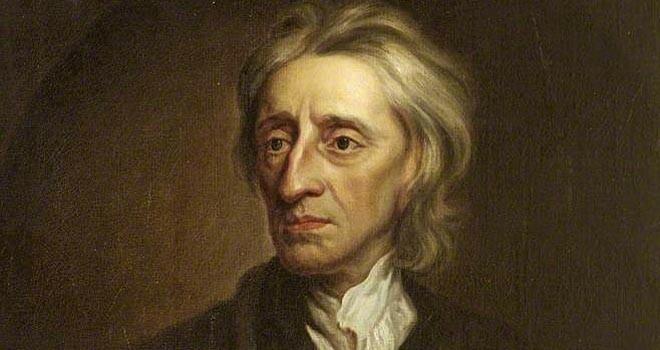
John Locke he was English. He was the exponent of British empiricism and one of the greatest theorists of the social contract.
Main Ideas
John Locke claimed that the mind was like a "blank slate". He rejected any conception based on the "innate ideas" argument, since all our ideas had a beginning and an end in the senses of the body.
Man is born as a blank sheet, devoid of characters or ideas.
Locke fought the idea that God decided the fate of men and claimed that society corrupted the divine will or the triumph of good.
His ideas helped to bring down the english absolutism.
Main Works
One of his main works, “Two Treatises on Civil Government”, deals with absolutism.
Among other works, he wrote “Letters on Tolerance” and “Essays on Human Understanding”.
Jean-Jacques Rousseau (1712-1778)
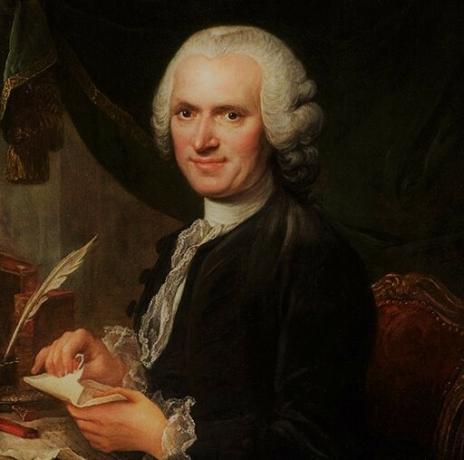
Jean-Jacques Rousseau he was a Swiss philosopher who laid the foundations for European Romanticism.
Main Ideas
Rousseau was in favor of the “social contract”, a way of promoting the social justice that gives his main work its name.
He preached that private property generated inequality among men. According to him, men would have been corrupted by society when popular sovereignty had ended.
Man was born free, and everywhere he is in chains.
Main Works
"The Social Contract" is his most outstanding work by Rousseau. In "Émile", another work of great importance, Rousseau deals with education stating that it must be the basis for the reconstruction of humanity.
Montesquieu (1689-1755)
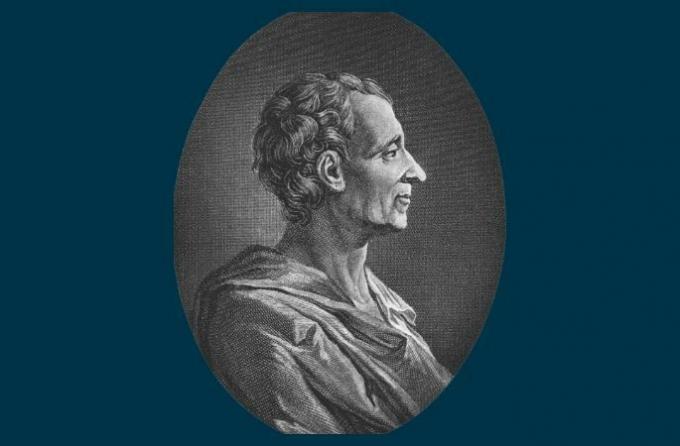
Montesquieu, Charles-Louis de Secondat, became known as Baron de La Brède and de Montesquieu.
Famous French jurist and philosopher who excelled in the areas of philosophy of history and constitutional law, Montesquieu was one of the creators of the philosophy of history.
Main Ideas
Montesquieu systematically criticized political authoritarianism, as well as the traditions of European institutions, especially the monarchy English.
There is no crueler tyranny than that which it exercises in the shadow of laws and in the colors of justice.
Main Works
In his main work, “The Spirit of Laws”, Montesquieu defends the separation of three powers of the State in Legislative, Executive and Judiciary. He believed that this was a way to maintain individual rights.
His work was the inspiration for the "Declaration of the Rights of Man and of the Citizen" (1789), for the French Revolution and for the Constitution of the United States (1787).
Before "The Spirit of Laws", he wrote "Persian Letters".
Denis Diderot (1713-1784)
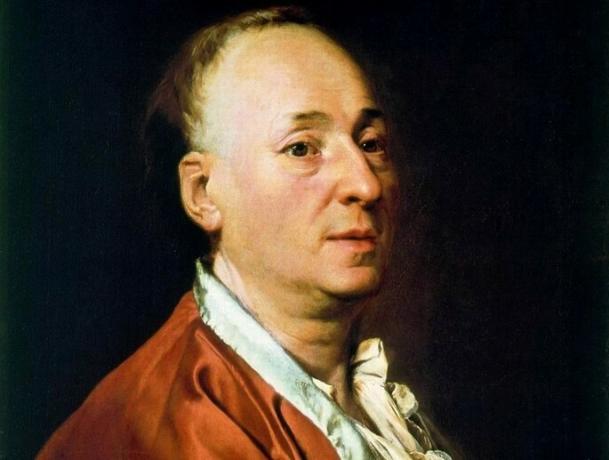
Denis Diderot was a French philosopher and translator who was born in Langres. The first work in which he excelled landed him in prison.
Main Ideas
Diderot criticized the absolutism and defended the idea that politics was responsible for eliminating the differences existing in societies.
Having slaves is nothing, but what becomes intolerable is having slaves calling them citizens.
Main Works
His first major work was "Letters About the Blind For Use By Those Who See".
He was responsible for preparing, in partnership with D'Alembert, the famous "Encyclopedia" or "Rational Dictionary of the Sciences, Arts and Crafts".
Composed of 33 volumes, the work brings together the main knowledge accumulated by humanity at that time.
It was first published in France (1751 and 1772), where it spread to become the main Enlightenment propaganda. For this reason, Illuminists are known as "encyclopedists".
Adam Smith (1723-1790)
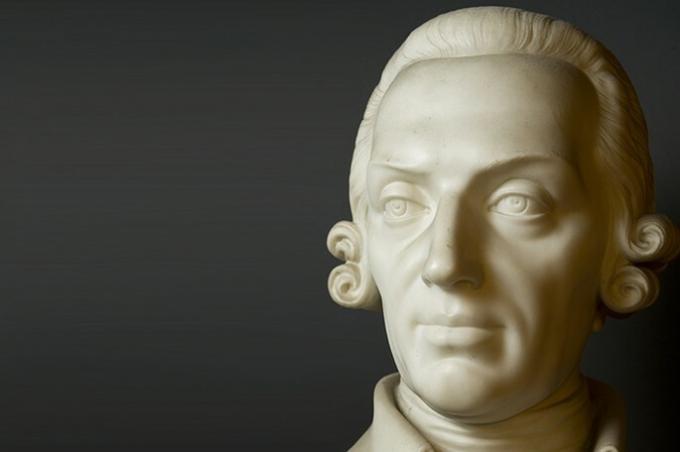
Adam Smith is considered one of the leading theorists of movement. Scottish philosopher and economist, he is given the title of "father of modern economics".
Main Ideas
Adam Smith claimed that only with the end of monopolies and mercantilist policy would the state truly prosper.
This is because the wealth of nations came from individual effort (self-interest) which, in turn, is what drives economic growth and technological innovation.
It is not from the benevolence of the butcher, the brewer and the baker that we await our dinner, but from the consideration they have for their own interests.
Thus, private enterprise should act freely, with little or no government intervention. This made his thought intensely influence the bourgeoisie, desirous of ending feudal privileges and mercantilism.
Main Works
"The Wealth of Nations" is the name of the main work of this thinker, while "Theory of Moral Sentiments" is the name of his main treatise.
Other Enlightenment Thinkers
Many were the philosophers who sought to separate religious issues from the production of knowledge and aimed at the production of fully rational knowledge.
Some important names that influenced or were influenced by Enlightenment thought were:
Things seem absurd or bad to us because we have a partial knowledge of them, and we are completely ignorant of the order and coherence of nature as a whole.
There is no method of reasoning more common, and yet more reprehensible, than, in philosophical disputes, try to refute any hypothesis appealing to the danger of its consequences for religion and morality.
Jean le Rond d'Alembert (1717-1783)
Philosophy is nothing more than the application of reason to the different objects on which it can be exercised.
The Enlightenment represents the departure of human beings from a minority that they have imposed on themselves. (...) Sapere aude! [Dare to know!] Have the courage to make use of your own reason! - that is the motto of the Enlightenment.
See too: Enlightenment Questions


